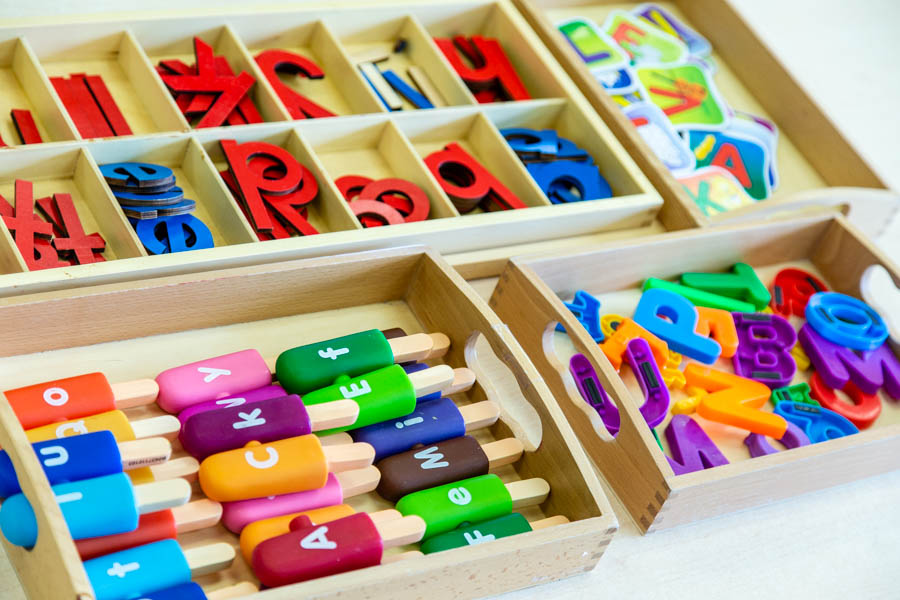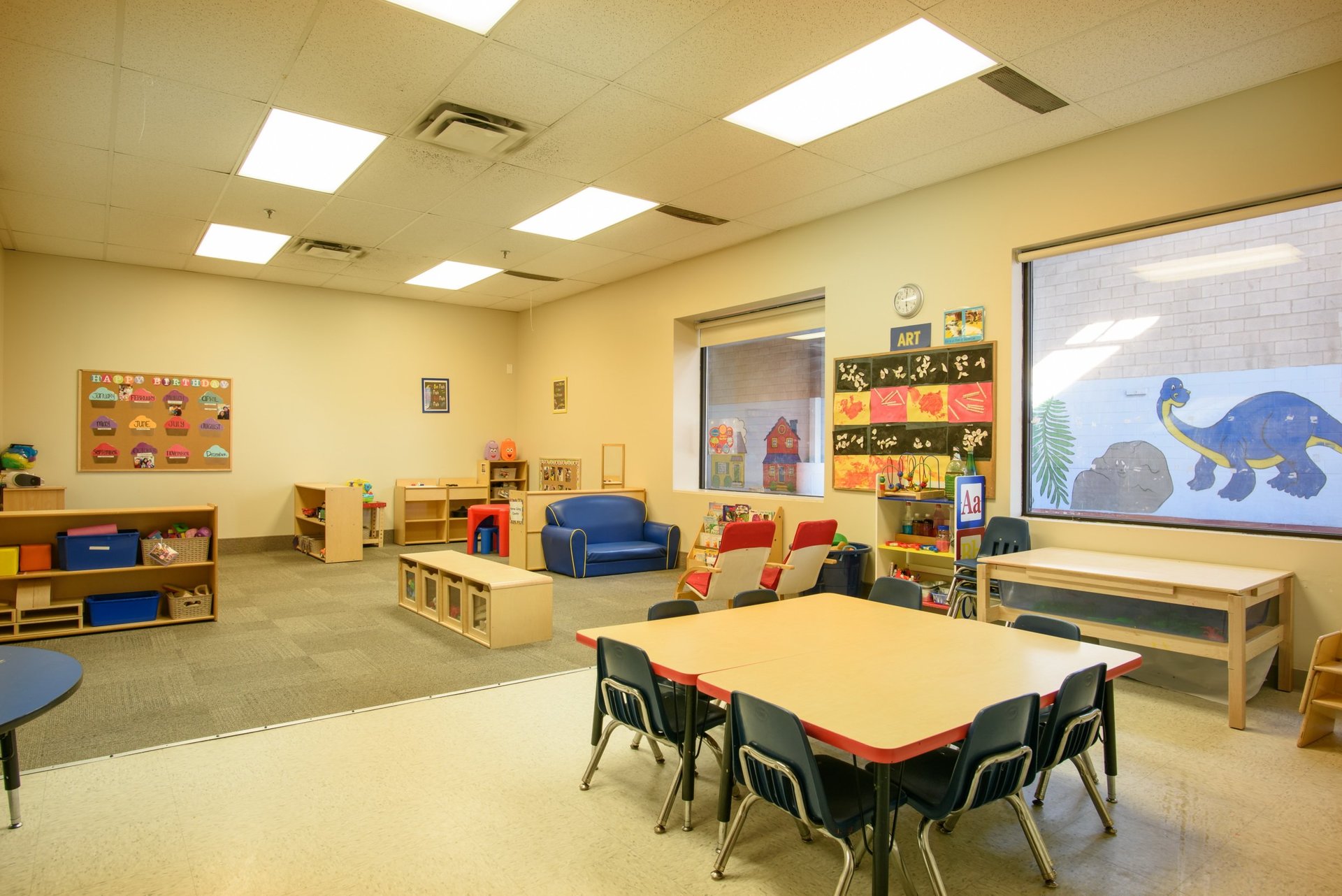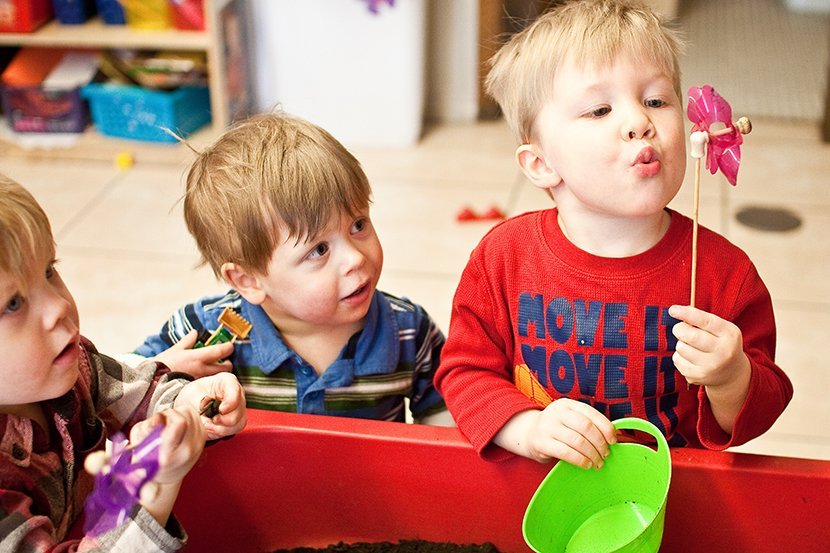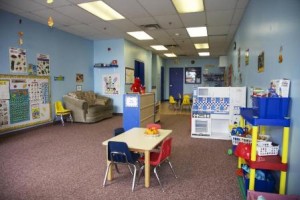The Importance of Language and Literacy for Children in Daycare – Part 1
The Importance of Language and Literacy for Children in Daycare – Part 1
The Importance of Language and Literacy for Children in Daycare – Part 1 – At Alpha’s Discovery Kids Preschool and Daycare, located in Mississauga and Oakville, we have created a curriculum that fosters children’s natural curiosity through exploration, play and inquiry. Our curriculum focuses on The 4 Pillars of Learning: 1) Language and Literacy, 2) STEAM (Science, Technology, Engineering, Arts, Math), 3) Physical Activity and Nutrition, and 4) Mindful Awareness. Over the next few months, we will be examining the 4 Pillars in-depth, and providing tips on how parents can incorporate the curriculum in their own homes.
First Pillar Of Learning
Language and Literacy is the first Pillar of Learning because it is the foundation for acquiring all other skills. The ability to communicate effectively, through both verbal and written communication, is key to learning all other subject areas and achieving academic success.
Language and Literacy go hand in hand, especially when working with young children. A toddler’s brain is at peak ability for learning, meaning a solid groundwork for language and literacy can be established at this time. As a person ages, we lose the ability to easily learn new things, but for young children presenting language and literacy together is easy and natural, because they are not differentiating written language from spoken language the way adults do. It is all just learning how to communicate.
There are many ways to develop language and literacy in young children. When engaging with the children we use full sentences, not “baby talk”, and use the vocabulary suitable for whatever we are doing at the time. We encourage children to ask questions about new words. We enunciate clearly so they can hear the letter sounds we are using. To help develop speech, we give them time to get their thoughts out. We do not speak for them or assume we know what the want to say. If they need something, we encourage them to ask for it. If they can’t articulate what they want, then we model the words for them, e.g., “Oh, you want some water? Here is your water.” This will help them frame the question for the next time.
Embrace The Opportunity
Many of the children who come through our doors everyday speak a different language at home and then English when they come to school. Often they will become interpreters for other, older family members. We don’t see this as a challenge, we recognize it as an opportunity. A person’s brain is at peak ability to learn language between the ages of 1-6 years. To fully exploit this, we take the opportunity to introduce them to Canada’s other official language, French, in our classrooms. We use songs to introduce them to the French alphabet, numbers, colours, and basic words, giving them a head start on learning the language, since public schools don’t usually introduce French until fourth grade. If a parent wants to pursue a French immersion program, their child will begin with a solid base in the language.
These are just some of the ways we incorporate Language and Literacy skills in our classrooms to help your children thrive. Stay tuned for our next blog post, where we will continue to provide more information about how we teach children to read and tips for parents to use at home too! If you want further information about The 4 Pillars of Learning, click on the Curriculum page.
The Importance of Language and Literacy for Children in Daycare – Part 1
by Susie Beghin
Daycare in Mississauga: The Do’s and Don’ts of Dropping off your Child
Dropping Off Your Child At Daycare
Dropping Off Your Child At Daycare – It’s almost time to head back to school or daycare in Mississauga for many kids who have been at home with their parents. Some kids may be experiencing separation from their parents for the first time. Many parents struggle with the separation of an anxious child when dropping off at school or daycare. You may be worried and heartbroken when you see them crying right when it’s time for you to leave. You are not alone. At Alpha’s Discovery Kids Preschool and Daycare in Mississauga, we have seen this many times and we can help you make the transition from home to preschool or daycare as smooth as possible.
- DO – Say goodbye to your child and give them a hug and kiss. Let them know you love them and you will be back.
- DO – explain that you will be back after a certain activity such as (after outside time) or (when they wake up from nap time) etc. it’s good to make a plan so the child can relate the time of day you will return.
- DO – make a plan for a special activity you will do with them after you pick them up and stick to it. It could be something simple like reading a favorite book together or playing a favorite game or going to the park. This serves as a great distraction that the teacher can talk about after you leave.
- DO – remind them that they will have fun and show them some of the fun stuff they will do.
- DON’T – sneak out when they are not looking. This never works and usually leaves the child more anxious and fearful.
- DON’T – look scared and sad to leave your child. Your child is looking at you and needs to know that they are safe and there is nothing for them to worry about. This may take a bit of acting on your part, especially if it is your first child and they are separating for the first time.
- DON’T – linger or watch by the door or window. Make your goodbye brief and don’t stay too long. It’s better for you to leave and let the child start the process of becoming independent. I can assure you that the longer you stay, the longer the child will cry.
- DO – Call the preschool or daycare and check on your child. You will feel better when you know your child has calmed down. They eventually calm down and get distracted by all the fun they are going to have.
- DO – understand that a transition takes times and your child will not adjust right away. They need time to get used to a new teacher and a new environment. Some children can adapt quickly while others need more time – sometimes weeks or months. Each child is unique but they will eventually make the adjustment.
We know it is difficult to walk away when your child is in tears, but if you follow these do’s and don’ts, we can almost guarantee that the child you pick up will be smiling, happy, and excited to tell you about their day at school. And remember that you are teaching independence and that is an important skill for life!
Speech/Language: Does my child have speech delay?
 Is my child’s speech delayed? This seems to be a question that many parents are asking their daycare teachers in Mississauga and the surrounding area. More and more families are becoming aware of developmental delays and are being proactive in seeking help through daycare centres.
Is my child’s speech delayed? This seems to be a question that many parents are asking their daycare teachers in Mississauga and the surrounding area. More and more families are becoming aware of developmental delays and are being proactive in seeking help through daycare centres.
At Alpha’s Discovery Kids, there are a variety of highly trained Early Childhood Educators with experience and resources to support children ages 12 months to 5 years in all areas of development. Our philosophy centres around being an inclusive daycare environment to provide the best care for children at every stage of their development.
There are numerous resources online to educate yourself on “typical” child development but every child is different. Even as adults, we all have strengths and weaknesses but finding the right resources in order to develop our skills is an ongoing journey of development. In Mississauga and the Peel Region; there are several programs that can help you and your family with speech and language.
Many child development experts agree that the first step to developing your child’s speech and language is to seek a daycare environment that best suits your family. The daycare environment has so many opportunities for genuine peer and teacher interactions that can support your child’s language skills as well as their social interactions. The teachers are trained to provide experiences that allow your child to grow their language skills at their own pace.
The second step is to seek the advice of a resource consultant who can support you and your family at the daycare. In Mississauga, we are supported by a regional program called Peel Inclusive Resource Services (PIRS) which allow the educator and resource consultant to work directly with families to give families available resources, tips and advice to support the child to achieve speech and language goals.
Finally, it is a good idea to speak with your child’s doctor and seek a referral for your child to get a speech and language assessment by a speech and language pathologist. In the city of Mississauga, there are several free resources for every family to give their child the best start in life.
Signs your Child is Ready for Potty Training
 Signs your Child is Ready for Potty Training
Signs your Child is Ready for Potty Training
Signs your Child is Ready for Potty Training
How do you know if your child is ready for potty training? How young is too young or how old is too old? This is a question we are often asked at Alpha’s Preschool Academy and Child Care Centre in Mississauga on a regular basis.
As child care professional with quite a bit of experience, we can honestly say there is no definitive answer. Every child is amazingly unique and develops in their own time. Even if you parent your child in the exact same way at the same time, as in the case with twins, they still won’t be the same!
At our daycare in Mississauga, we always work with our families to create a stress-free potty training routine to best suit the child and the care and love that is needed during this big transition. There are certain readiness signs to watch out for which we will highlight in this article.
Physical Signs
Your child should be able to walk steadily with confidence and co-ordination. Keep track of your child’s wet diapers and how often they are wet throughout the day. Observe how long your child can stay dry. If they are able to keep it dry for over 2 hours, that is a good sign that they are physically ready to start the potty training process. Also, ensure that your child has regular bowl movements with predicable times.
Behavioural Signs
If our daycare has taught us anything, it is definitely that behaviours are always changing with so many factors such as : age, environment, new care providers, mood etc. These are just general suggestions of signs to look for.
Your child should be able to sit for up to 5 minutes continuously. Your child should be able to pull pants up and down on their own. If not, don’t hesitate to encourage your child to learn that skill whenever you have an opportunity to do so. Some kids don’t like to feel wet our soiled and will be uncomfortable. If that’s the case, then take advantage of that as an opportunity to start potty training! If your child takes an interest in using the washroom, encourage them to do so. If your child is attending daycare and they show interest with the other children using the toilet, that is also a good sign. If they are always asserting their independence this is a great motivator to encourage potty training!
Cognitive Signs
Your child needs to be able to communicate with you to let you know that they need to use the toilet. If your child is able to follow simple directions and is talking in a few words and phrases, they are ready to learn the words to identify “pee” or “poo” which will help with the potty training process.
Resisting
If your child resists using the toilet and seems to show no interest in the potty training process, this is not something that can be forced. You want the process to be successful and if you start with resistance, the process will not go well. Listen to your child and look for the key physical, behavioural and cognitive signs indicated above before you start the potty training process.
At Alpha’s Discovery Kids Preschool and Daycare in Mississauga, we watch for the signs and keep open communication with families about the child’s readiness to use the toilet. We work with our families to ensure the child’s success.
Transitioning into Daycare
One of the most emotional things for a parent to experience is the transition from home to daycare. It is so hard to imagine a complete stranger taking care of your child regardless of their qualifications. First of all, you need to know that you are not alone in feeling this way. At Alpha’s Discovery Kids Preschool and Daycare in Mississauga, we want to make the transition to daycare as smooth as possible so here are some tips to make the transition easier. Read more ›
Child Care Subsidy in Mississauga
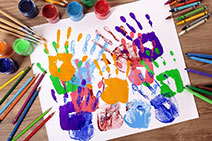 Finding subsidized child care in Mississauga may seem like a difficult task. Child care subsidy is a phrase that many parents may hear about but they do not know what it is or how to obtain it. There are many stereotypes and myths associated with child care subsidy. So here’s the facts about child care subsidy, who can apply and how to do so.
Finding subsidized child care in Mississauga may seem like a difficult task. Child care subsidy is a phrase that many parents may hear about but they do not know what it is or how to obtain it. There are many stereotypes and myths associated with child care subsidy. So here’s the facts about child care subsidy, who can apply and how to do so.
Tips for Dealing with Separation Anxiety at Daycare
Daycare Separation Anxiety
Goodbyes without tears
It is very normal for young children to experience difficulty separating from their parents. According to psychologists, this behaviour generally peaks between 8 and 18 months of age although many young children continue to have feelings of separation anxiety as they grow up. Read more ›
Finding a Quality Infant and Toddler Daycare and Child Care Centre in Mississauga
High Quality Infant and Toddler Daycare Mississauga
High quality infant and Toddler Daycare Mississauga – For many parents, finding a high quality infant and toddler daycare and child care centre in Mississauga can seem like an overwhelming task. Location, program, staff, quality, flexibility and cost are all key factors in the decision-making process. Read more ›

